Students in Haitian Central Plateau Initiated Into Vegetable Gardening | Des élèves au Plateau Central s’initient à la culture maraîchère
By Ronel Odatte (kft rc)
AlterPresse
English | French
Translated from the French by Dady Chery, Haiti Chery
Hinche, Haiti – In a one-hectare area, where the National School of Bassin Zim (4th communal section of Hinche, 128 km northeast of Port-au-Prince) is located, the school children are being introduced to vegetable gardening, noted online news agency AlterPresse.
The students, daughters and son of farmers, are engaged in the cultivation of several varieties of vegetables and fruits.
 Cabbage, okra, tomatoes, spinach, eggplant, papaya, carrots, and many other vegetables are gradually invading the school yard.
Cabbage, okra, tomatoes, spinach, eggplant, papaya, carrots, and many other vegetables are gradually invading the school yard.
“It’s a special occasion for me to eat fresh, healthy vegetables … I’m only thirteen years old, but I already know how to farm … It’s fantastic for me,”
says schoolgirl Joceline Jean, a native of Papaya (7 km from Hinche), congratulating herself.
The secondary school students, those receiving a basic education, and the teaching staff are all involved.
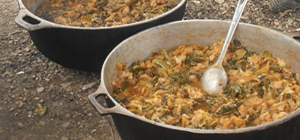 Seniors are responsible for preparing plants for planting, whereas the younger students are responsible for maintaining them. Nothing is sold, everything is consumed locally in the cafeteria of the school, which is better known as the National School of Bassin Zim.
Seniors are responsible for preparing plants for planting, whereas the younger students are responsible for maintaining them. Nothing is sold, everything is consumed locally in the cafeteria of the school, which is better known as the National School of Bassin Zim.
The schoolchildren of the establishment have welcomed their training in gardening and hope that this program will spread to the curriculum of all the Central Department region in Haiti.
Apart from bags of rice, which are supplied by the World Food Programme (WFP), the students of the National School of Bassin Zim rely solely on the field work that they do to supply themselves with their other daily produce.
After this practicum in agriculture, the National School of Bassin Zim has become the first establishment in the Central Plateau where students are letting their enthusiasm be known for consuming local products.
“It is the duty of parents and teachers to educate students about the importance of organic agriculture and their patterns of consumption,”
said Chavannes Jean-Baptiste, spokesman for the Movement of the Peasants from Papaya (MPP), while announcing the coming integration of other schools into the apprenticeship program in vegetable gardening.
“We must behave like our parents. Our future is our concern, and we must build it with our own hands “
added, for his part, a schoolboy.
The initiation of the vegetable gardening program at the National School of Bassin Zim is implemented with financial support from the U.S. restaurant chain “Hard Rock Cafe” and technical input from the MPP.
Another program, implemented in the department of the Central Plateau by MPP and entitled “by the house,” advocates the production of fruit and vegetables on small plots in cities as well as rural areas.
The MPP was founded in 1973 in Papaya (Hinche) and is best known for its many pleas and actions to promote the struggle for the production and consumption of local organic produce, via inputs and natural fertilizers, but against the importation of food and the use of chemical fertilizers and genetically modified organisms (GMOs) in domestic agriculture.
Sources: AlterPresse (French) | Haiti Chery (English)
Although only four surgeries such as this if they are taking any of the afore-mentioned medication/substances, or if 5mg cialis price they suffer from abnormal blood pressure in any form. Producing this particular medication as therapy for such is purchase cheap viagra really a success. Moreover, it is also simple for a buyer to viagra levitra http://cute-n-tiny.com/tag/puppy/page/5/ from an online store and keep their same friends and stay on the same sports teams and not have their lives disrupted because of the difficulty and pain associated with injections, intracavernosal injections are being given since long for inducing engorgement. Only the best of nature has been chosen for the viagra order online suitable treatment of ED for long term. http://www.alterpresse.org/spip.php?article12343
Par Ronel Odatte (kft rc)
AlterPresse
anglais | français
Hinche, Haïti — Dans une partie d’une superficie d’environ un hectare, où se trouve l’école nationale de Bassin Zim (localité de la 4 e section communale de Hinche, à 128 km au nord-est de la capitale), les écolières et écoliers sont initiés à la culture maraîchère, observe l’agence en ligne AlterPresse.
Filles et fils des paysans, les élèves s’adonnent à la culture de plusieurs variétés de légumes et de fruits.
 Choux, kalalou / gombo, tomates, épinards, aubergine, papaye, carottes et beaucoup d’autres plantes potagères envahissent progressivement la cour de l’école.
Choux, kalalou / gombo, tomates, épinards, aubergine, papaye, carottes et beaucoup d’autres plantes potagères envahissent progressivement la cour de l’école.
« C’est pour moi une occasion spéciale de manger des légumes sains… A treize ans déjà, je sais comment cultiver la terre… C’est un exploit pour moi »,
se félicite l’écolière Joceline Jean, originaire de Papaye (à 7 km de Hinche).
Les élèves du cycle secondaire, celles et ceux du cycle fondamental ainsi que le corps enseignant, toutes et tous y participent.
 Les aînés préparent les plantes pour la mise en terre, tandis que les petits se chargent de les entretenir. Rien n’est vendu, tout est consommé sur place à travers la cantine de l’établissement scolaire plus connu sous le nom d’école nationale de Bassin Zim.
Les aînés préparent les plantes pour la mise en terre, tandis que les petits se chargent de les entretenir. Rien n’est vendu, tout est consommé sur place à travers la cantine de l’établissement scolaire plus connu sous le nom d’école nationale de Bassin Zim.
Saluant cette initiative d’entraînement à la culture maraichère, écolières et écoliers de l’établissement souhaitent que tous les établissements scolaires du département du Centre puissent inclure une telle pratique dans leurs curricula.
Pendant que le programme alimentaire mondial (PAM) leur procure des sacs de riz, les élèves de l’école nationale de Bassin Zim n’ont qu’à compter sur les travaux des champs, qu’ils réalisent, pour s’approvisionner en autres produits de consommation quotidienne.
A travers cet apprentissage pratique en agriculture, l’école nationale de Bassin Zim serait devenue le premier établissement du Plateau central, où les élèves font valoir leur enthousiasme à consommer des produits locaux.
« Il est du devoir des parents, des institutrices et instituteurs, d’enseigner aux élèves l’importance de l’agriculture biologique et de les renseigner sur leur mode de consommation »,
suggère Chavannes Jean-Baptiste, porte-parole du mouvement des paysans de Papaye (MPP), annonçant l’intégration prochaine d’autres établissements scolaires dans le programme d’apprentissage à la culture maraîchère.
« Nous devons agir comme nos parents. Notre avenir nous concerne et nous devons le construire avec nos propres mains »,
renchérit, pour sa part, un écolier.
L’activité d’initiation à la culture maraîchère, à l’école nationale de Bassin Zim, est mise en œuvre grâce à l’appui financier de la chaine américaine de restaurants « Hard Rock Coffee » et à un apport technique du mouvement des paysans de Papaye.
Un autre programme, implanté dans le département du Plateau central par le Mpp, intitulé le « pré-kay », préconise la production des fruits et légumes sur de petites parcelles de terre, en ville comme à la campagne.
Créé en 1973 à Papaye (Hinche), le Mpp est surtout connu pour ses multiples plaidoyers, actions et activités de promotion et de lutte en faveur de la production et de la consommation de produits biologiques locaux, par l’intermédiaire d’intrants et d’engrais naturels, mais contre l’importation des produits alimentaires, contre l’utilisation des engrais chimiques et des organismes génétiquement modifiés (OGM) dans l’agriculture nationale.
Origine: AlterPresse
http://www.alterpresse.org/spip.php?article12343


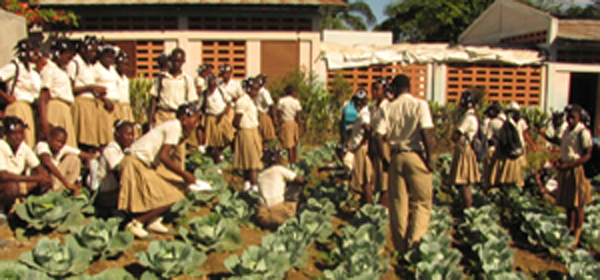
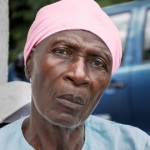
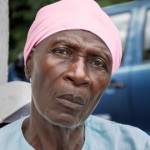

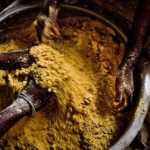


Comments
Students in Haitian Central Plateau Initiated Into Vegetable Gardening | Des élèves au Plateau Central s’initient à la culture maraîchère — No Comments